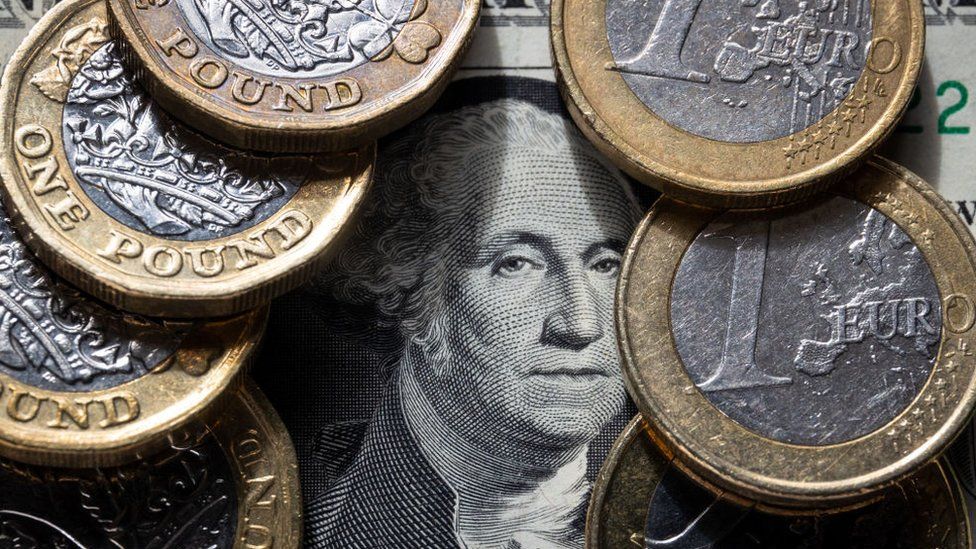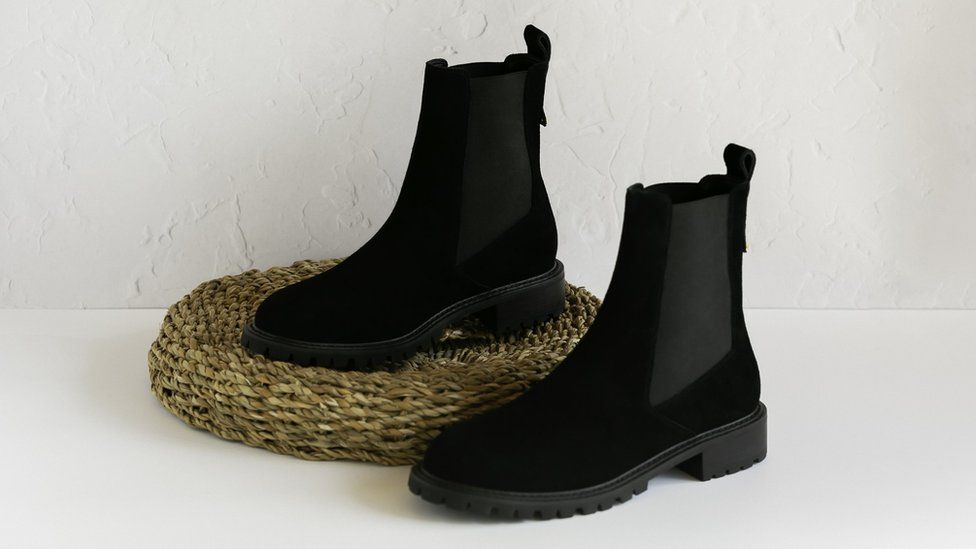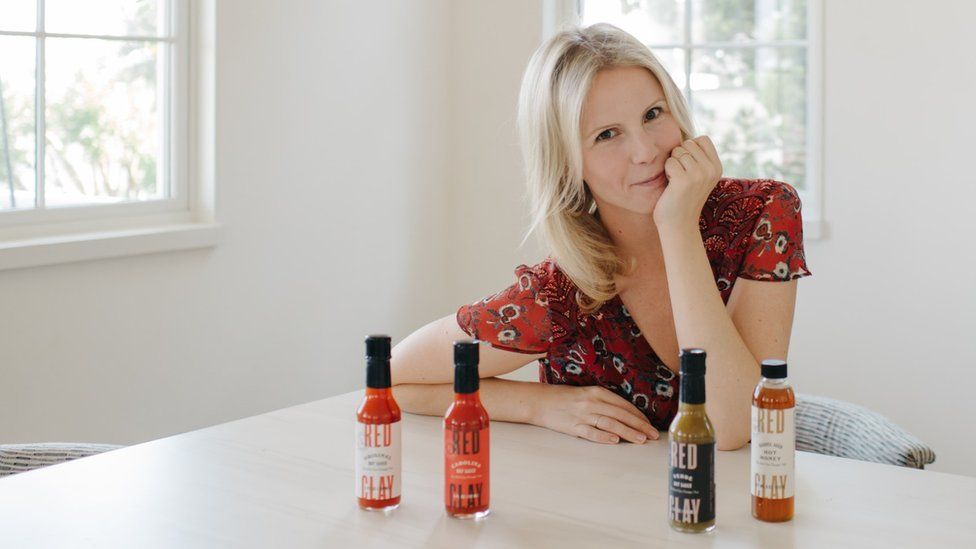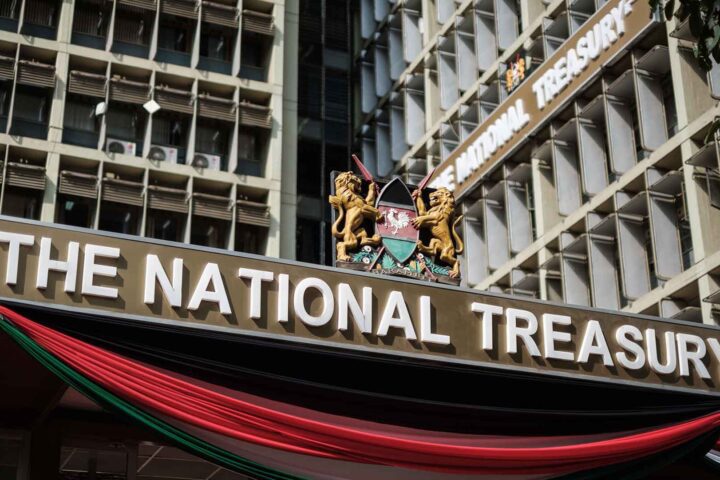Sherene Headley got a big surprise when she checked the invoice from her manufacturer in China this past autumn.
The founder and chief executive of Mokkah, a London-based company that makes shoes in large sizes for women, had ordered 57 pairs of black suede boots to sell to customers.
But the manufacturer’s invoice, which was priced in US dollars, was about 20% more expensive than Ms Headley had expected.
When the British pound sank to a record low against the US dollar in September, her fledgling company’s overseas buying power dropped with it. The pound’s fall makes goods priced in dollars much more expensive to buy.
For any business, that can be a shock; for a new business, it can be debilitating.

“A lot of small businesses, their margins are quite small when they’re trying to get their businesses out there,” Ms Headley says. “So I knew from the outset that I could never compete with the High Street [on price] because we just haven’t got the resources to be able to do that.”
From its inception, Mokkah has been a lean, bootstrapped company. Using Crowdfunder, the fundraising platform, Ms Headley raised £13,000 in June 2020, to launch the firm.
Thanks to advice from her business mentor, Ms Headley prices her products high enough to protect against unexpected increased costs.
“Luckily for me, who is new to business, I was able to put some measures in place so my selling rate for the UK would work out OK, even with this increased conversion,” Ms Headley says.
“It would still allow me the space to be able to be like, ‘this is what I could plug back in to get another pair of shoes, or another sample made’.”
While the pound has stabilised since September, it is still historically low against the US dollar.
You might think that this would help Ms Headley boost exports to the US, as her shoes are cheaper to buy in dollars than they would be if the pound was higher. However, the weak pound has meant that the cost of global shipping has risen sharply for UK exporters.
“The real challenge I would say, when it does come, is if I was to increase my sales abroad,” says Ms Headley. “At the moment, I do have quite a few customers that buy from America, but the bulk of my sales are here in the UK.”

For small manufacturers in the US, the high value of the dollar makes their products more expensive for overseas customers, making it harder for them to win export orders.
Molly Fienning, chief executive of South Carolina-based Red Clay Hot Sauce, says she would still love to expand her company’s overseas sales in the years ahead.
“We need to find that right [overseas] partner,” she says. “We want to really own our backyard, and own the South, then own the US, then think about global.”
Ms Fienning says that in addition to the currency issue, she has seen the cost of key business expenses, such as the price of cardboard boxes and how much she has to pay freight firms, reach their highest levels since she became chief executive in 2018.

To insulate the business from any currency swings, Red Clay only sources its ingredients from within the US. These include sweet peppers, raw honey and white wine vinegar.
“We started with all Southern products, and then as we’ve scaled, we’ve needed more peppers and more honey,” Ms Fienning says.
Now, the company sources peppers from up and down the east coast of the US, from Florida to New York, and uses honey manufacturers in Georgia and Colorado.
Back in the UK, experts say that currency volatility is just one of numerous challenges for small firms. “I would say in general small UK companies are being challenged on several fronts,” says financial commentator Todd Benjamin.
“These include Brexit, a weaker currency if importing materials, higher labour costs due to wage inflation, higher taxation due to the chancellor’s announcement in the Autumn Statement, and an economy that is weaker for the foreseeable future.”
In Istanbul, Pinar Büyükbalci, associate professor of entrepreneurship at the city’s Yildiz Technical University, says that global investors are increasingly wary of investing in emerging economies that have seen their currencies drop sharply against the dollar, such as Turkey and its lira.

“What we have been witnessing over the last year and a half is the very strict and cautious approach of foreign investors, when thinking about making further investment in start-ups in Turkey, and also in all other emerging markets,” she says.
Timuçin Bilgör, the president of the Turkish-based investor network, Buba Ventures, agrees that it is now more difficult for new firms to find overseas investment. “The challenge is finding money,” he says, adding that investors want to see more proof of success before they take the plunge.
With higher interest global rates, funds are also now more expensive. “The money is not cheap anymore,” says Mr Bilgör.
The bottom line for new businesses is to prepare for anything, and to try to add padding to prices to allow for shocks.
“So when it came to me creating my brand, luckily I was able to build in certain room for issues,” says Mokkah’s Ms Headley. “I didn’t really expect it to be a currency thing, and I’m hoping that with time it starts to improve.”
BBC





























